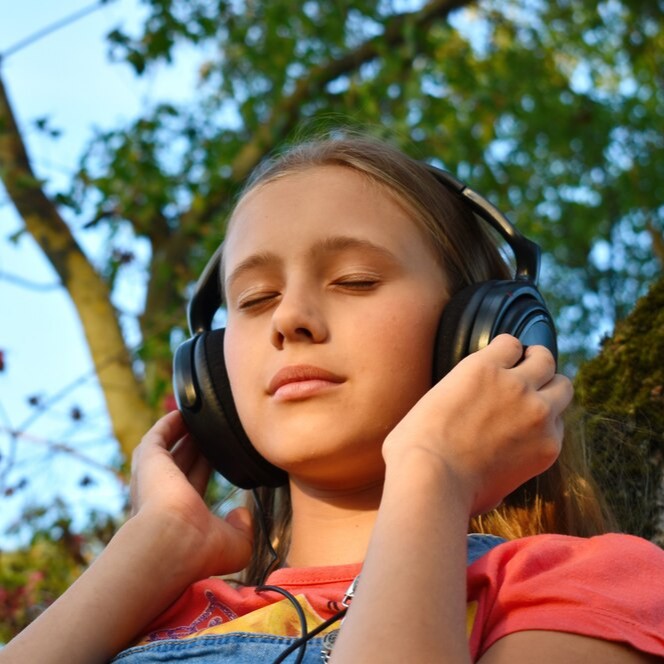
Moving Traditions’ Jewish Identity and Israel Curriculum includes an activity centered around the Israeli national anthem, Hatikvah (The Hope). Hatikvah is a foundational piece of knowledge every Jewish teen should be able to reference – and in our curriculum it’s also a way to jumpstart meaningful conversations. We offer you this 15-minute activity, Anthems: A Yom Ha’atzmaut Discussion Guide about national anthems from our new curriculum and use it to start your own profound conversation with your teen on Yom Ha’atzmaut – in the car, or anywhere else.
PRINT or SHARE the Anthems handout.
SAY:
Today we’re going to listen together to two familiar songs, starting with our national anthem. Even though it’s a song we’ve probably heard many times, listen closely this time to the lyrics. When I play the song, listen for imagery in the lyrics. (If you want to also print the lyrics you can invite teens to underline any words in the lyrics that refer to something you can see.) Listen also for any emotions that are mentioned or implied (and, if relevant underline those words.)
PLAY the “Star-Spangled Banner” (such as this 1:30 version) or “O, Canada” (such as this 1:10 version). To teens focus on the words, do not display the actual video.
ASK:
- What imagery in the lyrics did you notice or underline?
- What feelings did you notice or underline?
- Based on these details, if you were an alien visitor from outer space and heard this anthem without knowing anything else about the country, what might you expect that country to be like? What would it look like? What would it value?
Facilitator’s Tip: Possible answers include that the American anthem refers to war, danger, fighting, self-sacrifice, its own flag, and pride. Different analyses are possible, but as one example, the alien visitor might assume that the country has fought many wars and values bravery, soldiers, freedom, and heroism.
SAY:
You can learn a little about a country’s culture or values by analyzing its national anthem. We did an example with the American / Canadian anthem. Now, let’s listen to Israel’s national anthem. First we’re going to listen without looking at translation. Just notice the melody, and the emotions of the melody.
PLAY “Hatikvah” (such as this 1:30 version):
ASK:
- What emotions did you hear in the music?
- How were they different, if at all, from the American/Canadian anthem?
SAY:
Now, let’s read the lyrics. As we read, let’s listen for specific images and underline them. Let’s also listen for emotions expressed, or implied, and underline them.
READ the lyrics out loud or invite your teen do so.
ASK:
- What images did you hear (or underline)?
- What emotions did you hear (or underline)?
- Based on these details that we’ve highlighted, if you were an alien visitor from outer space and heard this anthem without knowing anything else about the country, what might you expect that country to be like? What would it look like? What would it value?
SAY:
The Israeli National Anthem, Hatikvah (“The Hope”), was based on a poem penned in 1878 by Naftali Herz Imber, a Jewish European poet who traveled extensively, including in Jerusalem and Haifa. The song became so popular among Zionists before the establishment of Israel that the British government even attempted to ban it because they were threatened by its vision. While it has been used as Israel’s anthem since the nation’s founding, it was only officially adopted by a Knesset vote in 2005.
Despite its widespread use, the lyrics have sparked some controversy. One reason is that about a quarter of Israel’s citizens are non-Jewish Arabs (also known as Palestinian citizens of Israel), who might feel uneasy singing about “a Jewish soul” yearning for their homeland when this is not part of their own story. Also, for Mizrahim, Jews of Arab origin, the reference to Israel as being in the “east” can be problematic, since Jerusalem was not to their east! These lyrics might highlight how some of modern Israel’s culture reflects Ashkenazi or European Jewish history and might not reflect the Mizrahi experience as much. Finally, religious Jews might find it troubling that the anthem makes no mention of God or religious practice.
Note: Try to hold an open and non-judgmental attitude to one another’s responses to the questions below. These are meant to be open-ended questions for which a range of responses are legitimate! Generational differences around emotional resonance and attachment with Hatikvah are to be expected.
ASK:
- Have you sung Hatikvah in a group before? If so, how do you feel when you sing it? (take time for parents to share how they feel listening and for teens/children to share how they feel listening; If you want, share memories that might arise for you when you hear Hatikvah)
- America’s national anthem includes the words, the “land of the free and the home of the brave”. In the last line of Hatikvah, Israel’s national anthem is the line, “l’hiyot am chofshi b’artzeinu,” (to live as free people in our land). Where do you think Jews are freer? Where do you feel freer? What is the difference between the American words which declares the land to be free and the Israeli anthem which expresses this as a yearning that might not yet be fulfilled?
- Do you think American/Canadian Jews should sing the Israeli national anthem? Why or why not?
- Some Israelis have suggested alternatives to the national anthem that speak to all Israeli citizens regardless of religion or nationality. Do you think the Israeli national anthem should be revised to represent all Israeli citizens? Why or why not?

